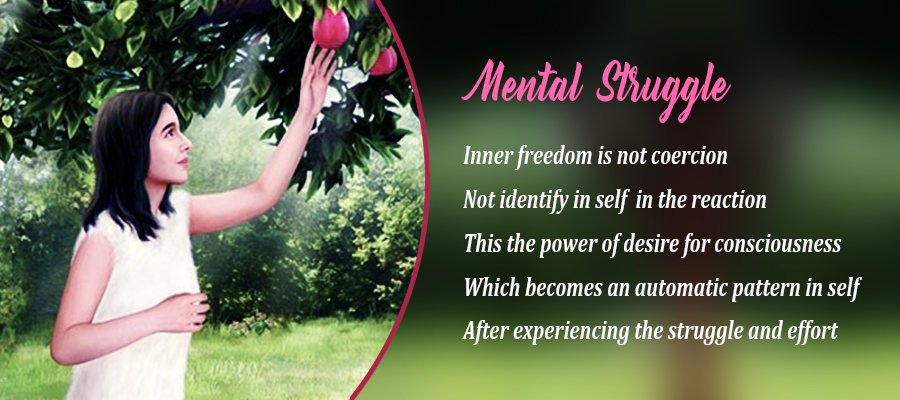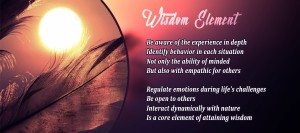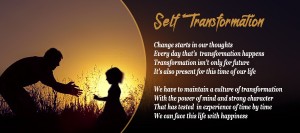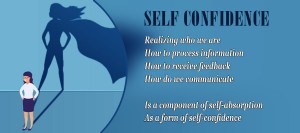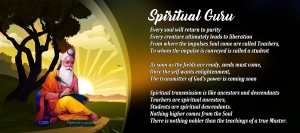When someone speaks of Freedom, what he generally has at the back of his mind is freedom from particular conditions or certain relationships which he finds irksome, which prevent him from enjoying what he desires. But there are innumerable things in life which are unwelcome and come up at sometime or other.
Even if there be a person who is content, free from troubles and worries, that condition does not last long. One tires even of those things which have given him the acutest pleasure. Sorrow and suffering come to him sooner or later.
Therefore the question is:
Is it possible for one to attain a state of total freedom, with all that it means, not a partial and temporary freedom, from this, that, or the other?
If this question can be answered affirmatively, as it has been by the great spiritual Teachers who have investigated it in its utmost depth, there can be nothing of greater significance to our lives.
Obviously such freedom must mean freedom within oneself, a state of mind and heart, not dependent on any circumstance or any person external to it, yet not isolation or immobility. The essence of freedom lies in the possibility of motion.
Life, the unique energy which it is, is always a flow and means relationships on every side, without which, as we know it, it would not even exist. Perception, interest, response, action, these are its characteristics which, to the conscious entity the “subject” as distinguished from the objects external to it – constitute relationship in a real and living sense.
In considering the possibility of freedom even amidst the various relationships that obtain, permitting the freest flow of life and its expressions, an important distinction has to be made between the subject, the nature of which is pure knowing and, arising out of that nature, all the faculties that constitute intelligence, and the “self” in each one of us with which, for all intents and purposes, it becomes fused.
The self has a different nature, being a center of reactions that take place mechanically; as a result of these reactions, which dim its awareness and lower it, there is an identification between the Being in which there is the faculty of knowing, that is, consciousness in its purity, and impressions that fall upon it and images formed within it by objects external to it.
Someone identifies himself, because of different reactions, with what is external to him, that is, to his essential being, be it a race, a country, a religion he has been taught, or anything else, including all the experiences of his past that are in his memory.
The consciousness that has so identified itself is the self, separate from other selves. To the primary realization “I am,” it adds the marks of its identification, “I am this, that, and the other.”
The identification, which is due to lack of clear perception or awareness, is a psychological illusion and is not in the real nature of things.
In spite of such unconscious identifications, the mind that belongs to that self and is active under its shadow may move with celerity and skill and show much ingenuity. Yet there may be a sense of elation in the exercise of capacities, there will not be the condition or feeling of freedom within itself.
Since “self” implies enclosure, we see it in external life as an enclosure of what one thinks belongs to him – there can be no real freedom from it. It can only manage to be free from particular things for a time. Freedom really consists in freedom from self, its propensities and the kind of action which results therefrom.
The action of this limited entity in the field where it moves and operates is swayed by forces that draw it toward certain things and repel it from others in various degrees of intensity. These are the forces of its cravings, wants, fears, hatreds, and dislikes; and there are other forces akin to these which operate in complex and devious ways.
It is the network created by these forces in which the conscious entity is caught, all the more securely because it identifies itself with that network. The movements of these forces are felt by it as its own movements. This is part of the identification process. Thus there is on the one side identification, which is a delusion, and on the other, the movements of these forces, their action and results.
In a condition of unawareness the movements that take place are largely elemental, confused, and mechanical. We can observe this in our thinking and feelings. However, by a process of inter-adjustment these movements fall into a comparatively settled pattern which varies from one individual to another because of the particular experiences that come to each and his reactions to them.
This pattern becomes a psychological mechanism in oneself which works automatically, tending to repeat the same thoughts and emotions over and over again. The more automatic the action, the less one is conscious of it. Thus one gives way to anger or a lustful feeling without realizing that fact. Our thinking, when it is not definitely directed with an end in view, proceeds from one thing to another by links of association in our memories, without any real volition on our part, according to established habits and tendencies.
This kind of thinking, which is so large a part of our lives, takes place by itself, as if in a dream which is neither full of awakeness nor oblivion.
What connects the entity at the center, with the object that confronts it at a particular time is the energy of its attention which may be characterized by different degrees of intensity, corresponding to the different pitches of a violin string.
The conditions of being slack or unwound would mean lack of attention and interest. It is thus that one meets most things which do not affect him with a sensation of pleasure. If all the strings, all the radii from the center, are non-vibrant, that would mean a condition of general listlessness, tending to boredom, to which one generally reacts, after a time, with a craving for sensation and excitement.
To be overwound is to be in a state of tension that shows itself as anxiety, aggressiveness and so forth. One is tense because of fear, ambition, the urge to grab, to possess, to experience a sensation that he anticipates, also to dominate and impress others. But all this is a far cry from freedom within oneself, which one experiences, at occasional moments, as a condition of ease, of peace, of an upwelling happiness.
It is freedom from all tensions, except that of a beautifully tuned string, in which there is neither urge nor inhibition – capable of vibration and resonance. The whole continuum of consciousness which may be conceived as consisting of innumerable such strings or radii, can have that quality. Without a truly relaxed inner condition, yet not sagging, not listless, there will not be the ability to see things, whatever these may be – in perspective, in their natural order, without exaggerations and obscurities.
Action in a condition of inner freedom is not out of an urge, conscious or unconscious, to fill a void within oneself. It can only be action for the sake of its rightness, not for its results.
The pleasure of being praised, of gaining a good conceit of oneself, of riding the wave of success, does not come into it. None of the various personal reactions which are the usual motivations comes into it. The action proceeds freely from a state of self-containment and equilibrium that does not suffer from any urge to be altered. It is action not compelled from without or from within. Not directed by mechanistic forces, it is born out of an intelligence that is really awake and not clouded by the shadows of the self. It has the character of a wholly free outflow, like the quality of mercy that is not strained, in Shakespeare’s language, of giving, without seeking, of love.
We may see a bird flying, gliding, gyrating or winging its way to some place. It seems to enjoy these movements which it makes in freedom. The movements are spontaneous and express the joy of motion. They are not unintelligent for the bird’s purposes. But its action is instinctive.
A state of freedom in the heart and mind of a human being shows similar characteristics: action out of an instinct of rightness (which is a natural compound of right orientation and a perfect judgment based on an instantaneous balancing of factors) and joy in so acting, and spontaneous in the impulses that cause the action. Love, generosity, the desire to give or help, all these arise spontaneously.
Such freedom in the very nature of one’s being is like the breath of life that animates every cell of the living body. To gain this freedom, one must desire it as something that is beautiful in itself and lovable, like the open expanse of the sky with illimitable depths, and not seek to bring it within the narrow confines of the self.
Really to know what it is like, one must perceive the hindrances to it, the meshes of the complicated web. As the existing condition has developed by a long mechanical process, as in a dream, over which we have had no control, it can be changed entirely if one wakes up from that dream.
The difference between awakeness and sleep is essentially the difference between paying attention and not paying any attention at all. One must give attention to things of significance to one’s living. It is only through self-knowledge that one can liberate oneself completely; and it is not knowledge gained from a book containing various terms and descriptions, although this can have a value as a map, but knowledge from the actual observation of oneself as he is and thinks and acts.
The goal of Liberation which has been put before the religious seeker is really a state of absolute Freedom within oneself. It has been understood as an end in store for every human being, to be attained after much struggle and effort.
The nature of this end is generally thought of as union with God. There have been discussions also as to what the union really connotes. We can know the truth with regard to such matters directly for oneself only when every kind of preconception with regard to them has been eliminated from his mind and there is in him the necessary condition for the perception of truth whether with regard to such transcendent matters of any others with which he may be practically concerned. Freedom is that condition, because it is freedom from every propensity that can deflect us from the absolute truth.
It is only out of freedom in oneself that there can be the blossoming of the beauty as well as the genius latent in man.

